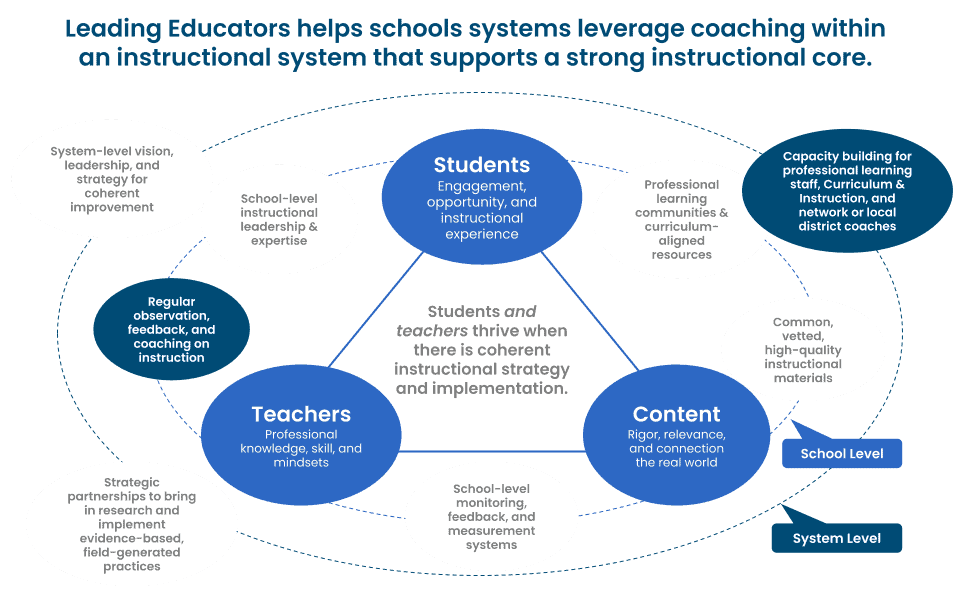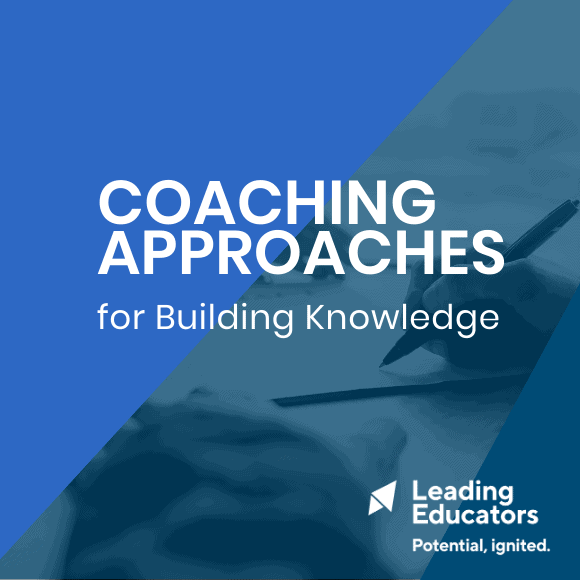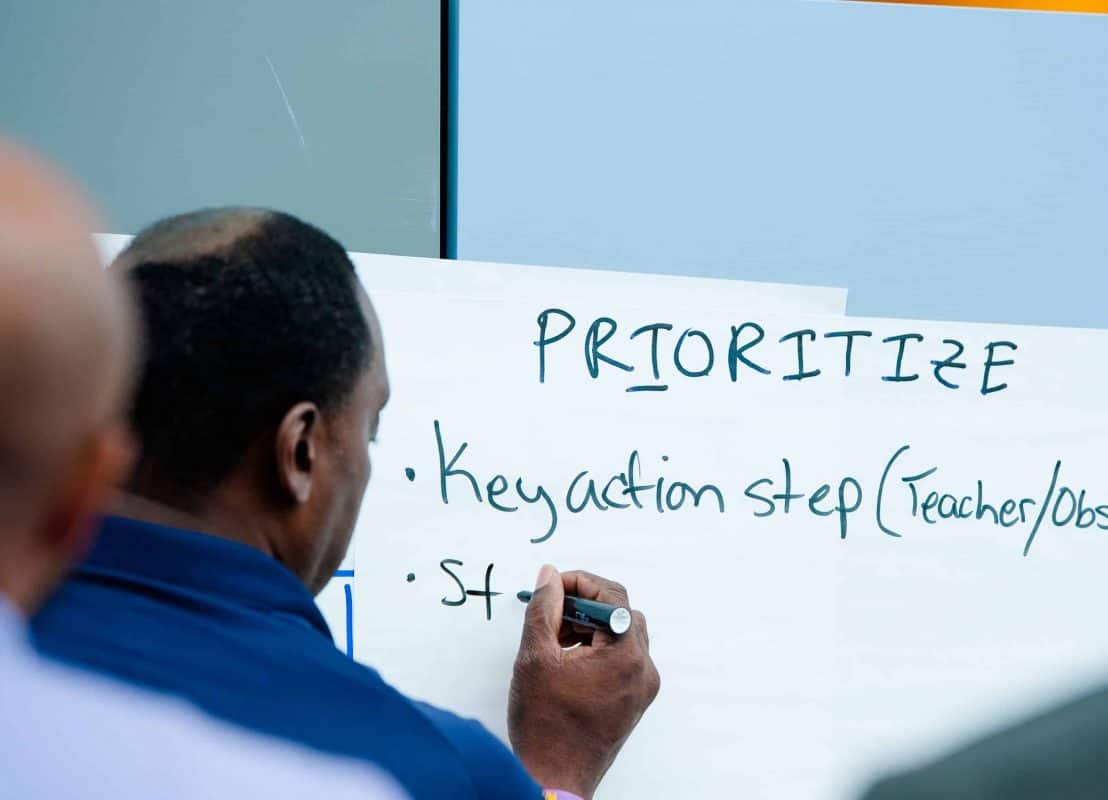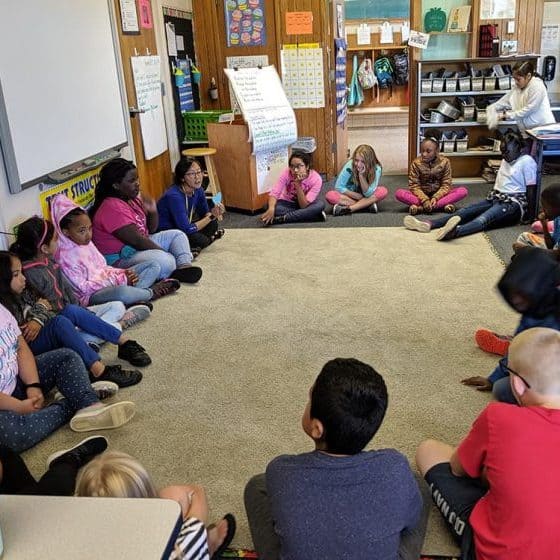
Improving Instruction
Demands on teachers are changing in real-time as schools work to accelerate learning, close stubborn opportunity gaps, and meet the needs of an evolving world.
To better leverage educators’ strengths and prepare all learners for the future, districts need to invest in their educators in ways that go beyond traditional one-size-fits-all professional development. That’s where coaching can come into play. So, what do you need to know and plan for to get the most value out of your coaching program?
Get More Value from Your Teacher Coaching Program
Why Prioritize Coaching?
While technical components of instructional strategy, like curricular materials, standards, and protocols, are critical inputs, teaching is also largely adaptive, human, and complex. Educators’ skills and knowledge grow more quickly and more durably when they have tailored support from expert mentors who have been in their shoes.
Coaches are crucial in helping teachers shift their perspectives, deepen their subject area knowledge and skills, and reach their goals. Numerous studies highlight the benefits of curriculum-based coaching, but it’s equally important to understand what works best in implementation. Coaching is most effective when situated within a larger, coherent instructional strategy.

When Coaching Goes Wrong
In a piece for Education Week, renowned coach Elena Aguilar named a few key ways that teacher coaching programs fail.
- “Coaching” isn’t defined: No one knows or agrees on what it is and what coaches are supposed to do. Furthermore, success isn’t defined.
- Coaches haven’t been trained: Coaches are often catapulted into the role, having been “good teachers” but without any professional development in how to work with adult learners.
- Coaches aren’t coaching: Coaches are assigned to do dozens of random tasks that have nothing to do with adult learning. Subbing for absent teachers and coordinating testing schedules is not coaching.
- Teachers are forced to receive coaching: Coaching is something that’s “done to” teachers who are struggling or not performing well, and therefore, it’s seen as a punitive measure, a last resort before something very bad.
- Coaches think they’re better than everyone else. They think they know more about everything, that they’re here to save the day, and they wander the school halls casting judgment on teachers and administrators.
Drawing from these common challenges and what we have seen in our work to build instructional capacity, we offer more diagnoses of three common challenges and solutions for creating a high-impact coaching program.
Download the Tool


Related Content
While you’re here, check out other related resources and stories from our work.
Need Support?
Are you interested in learning more about how Leading Educators can support you with the challenges named in this report? Get in touch with our Partnerships team today.






